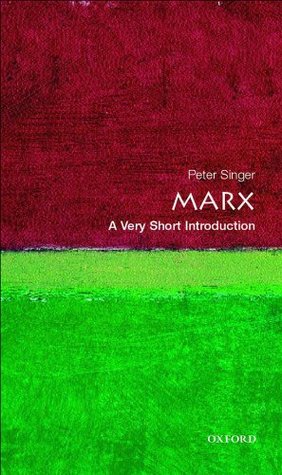More on this book
Community
Kindle Notes & Highlights
Hegel describes this as a situation in which Mind is ‘alienated’ from itself – that is, people (who are manifestations of Mind) take other people (who are also manifestations of Mind) as something foreign, hostile, and external to themselves, whereas they are in fact all part of the same great whole.
Money is the universal, self-constituted value of all things. Hence it has robbed the whole world, the human world as well as nature, of its proper value. Money is the alienated essence of man’s labour and life, and this alien essence dominates him as he worships it.
Whereas the property-owning middle class could win freedom for themselves on the basis of rights to property – thus excluding others from the freedom they gain – the property-less working class possess nothing but their title as human beings. Thus they can liberate themselves only by liberating all humanity.
Wages therefore tend to the lowest possible level compatible with keeping an adequate supply of workers alive.
Marx wants to ask larger questions, ignored by economists, such as ‘What in the evolution of mankind is the meaning of this reduction of the greater part of mankind to abstract labour?’ (By ‘abstract labour’ Marx means work done simply in order to earn a wage, rather than for the worker’s own specific purposes. Thus making a pair of shoes because one wants a pair of shoes is not abstract labour; making a pair of shoes because that happens to be a way of getting money is.)
In contrast to Hegel, whom Marx praises for grasping the self-development of man as a process, the classical economists take the present alienated condition of human society as its ‘essential, original and definitive form’. They fail to see that it is a necessary but temporary stage in the evolution of mankind.
The materialist conception of history is a theory of world history in which practical human activity, rather than thought, plays the crucial role.
‘It is not the consciousness of men that determines their existence, but, on the contrary, their social existence determines their consciousness’.
The materialist conception of history tells us that human beings are totally subject to forces they do not understand and cannot control. Moreover the materialist conception of history tells us that these forces are not supernatural tyrants, for ever above and beyond human control, but the productive powers of human beings themselves. Human productive powers, instead of serving human beings, appear to them as alien and hostile forces. The description of this state of alienation is the materialist conception of history.
Men make their own history, but they do not make it just as they please; they do not make it under circumstances chosen by themselves, but under circumstances directly encountered, given, and transmitted from the past.
‘mankind must first of all eat, drink, have shelter and clothing, before it can pursue politics, science, art, religion, etc.’
Marx then asks how wages are determined and answers that the price of labour is determined like the price of any other commodity. It may rise or fall according to supply and demand, but the general tendency is for wages to level down to the cost of production of labour, that is, the cost necessary for keeping the worker alive and capable of working and reproducing.
The reason for poverty and affluence being relative to the standard of our neighbours is, Marx says, that our desires are of a social nature. They are produced by our life in society, rather than by the objects we desire themselves. Thus rising wages do not produce greater satisfaction if the standard of living of the capitalist has risen even more.
Wage labour ‘produces the wealth that rules over it’, and gets from this hostile power its means of subsistence, only on condition that it again assists the growth of capital.
This is how capitalism enslaves its workers. Through machinery and the division of labour, capitalism greatly increases the productivity of human labour; but this increased productivity does not benefit the producers.


